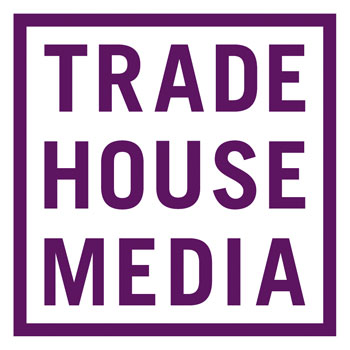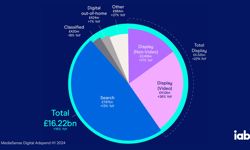
Most independent publishers, with pageviews in excess of one million per month, are not making the money they should be from digital advertising, believes Richard Cook, co-founder of Trade House Media, the Southampton-based provider of managed ad services for publishers.
Typically, independent publishers are driven by a passion for the subject matter. That is where their expertise lies and why they launched their titles in the first place. Often, they struggle to understand the complex and fast changing world of digital advertising with its confusing acronyms and arcane terminology.
To successfully deliver digital advertising solutions across a substantial site, publishers need access to considerable expertise to keep track of and manage the programmatic marketplace, campaign planning, delivery and analysis, ad unit formats and positioning, amongst other things.
To do this in-house, staffing costs alone would be, says Richard, in excess of £150k per year. That is if you want to do the job properly.
That is why most independent publishers don’t go down that route but instead limit their potential reach, with a combination of simple ad units sold direct to clients whilst allocating the bulk of their site’s ad inventory to Google AdSense or another advertising network.
This is an understandable approach but, inevitably, says Richard, leads to underperformance, for a number of reasons:
- Publishers cut themselves off from vast swathes of the programmatic marketplace (ie everything outside of AdSense). There are many vendors who would be a good match for their inventory, but never get a chance to purchase it.
- AdSense and other networks are plug-in-and-play platforms; there is lots of documentation but zero human support. The onus is on the publisher to manage the relationship and keep abreast of requirements and performance. This expertise is, as already mentioned, expensive.
- Properly engaging with the full competitive marketplace will bring in more revenue than a pure reliance on any single source of advertising.
Ad performance is also driven by a number of factors beyond the choice of advertising network including, ad format, ad positioning, the number of ad units on a page, site design and load times.
All these aspects need to be monitored and acted on continually. If you’re not finding time to do this, then you will be underperforming.
The result of such a narrow approach is less revenue, a poorer user experience, possible legal non-compliance issues and much higher costs as publishers seek to plug gaps in their expertise by taking on extra resource.
The outsourcing alternative
The alternative to doing it yourself is using a managed service, where a third party manages your ad inventory for you.
This arrangement involves a third party managing all programmatic sales on your behalf; this means you are plugging into their expertise and knowledge of the market.
The benefit is that you get access to expert knowledge at a fraction of the cost of employing it yourself and, depending on the service provider, access to a much larger and more competitive marketplace, meaning increased revenue.
The service is often provided on a revenue share basis, so there are no upfront costs.
If your aim is to optimise your digital ad revenue, then the trick is to choose the right partner. Key things to check with any potential service provider include: the level of expertise in the company, their existing clients (how many and do any look like you), where are they sourcing ads from (if it’s only AdSense or reseller marketplaces, how much are you really gaining), their service offering (what do you get, do you ever meet them), revenue share arrangements, insurance provision for bad-debt, and reporting standards.
The Trade House Media option
Trade House Media is one such provider and the reason for my virtual meeting with Richard in mid-October was that they are looking to expand their client base of independent publishers.
They currently have eighteen publishing clients and manage the ad inventory across forty websites, which amounts to more than two billion ad impressions a month.
Founded in 2016 by Richard, Antoine Pilate and Andrew Morgan, with several decades’ experience between them of the digital advertising world, the company now has eight full time staff plus access to extra development resource when needed.
What, I ask Richard, makes Trade House Media special?
“Our consultative approach,” he says; “we are selling a service, not a piece of technology. Our start point is to firstly understand a publisher’s business and the market they operate in.”
“The second step it to review their existing setup, the strengths and weaknesses of their current monetisation strategy, site performance and user experience and the publisher’s audience, content and data assets, that can be used to improve ad yield.”
“Our onboarding process, which typically takes about three months, starts with those two steps. The third step is to propose a strategy, which will involve presenting the publisher with a sitemap and a plan that will include placement positioning and formats, tech requirements, reporting standards, compliance strategy and resource management. This will be the blueprint of how we launch our successful partnership together. The fourth step is implementation and the fifth is ongoing development and review.”
How it works in practice
Once signed up, a publisher will typically retain control of a certain amount of site inventory for direct sales purposes and Trade House Media will handle all the programmatic sales.
With the strategy now agreed, Trade House Media will give the publisher the html code tags to place in the agreed positions on their site, to pull in the ads.
The Trade House Media platform then goes out into the market with the publisher’s inventory, where it has contracts with all the leading supply side platforms (SSP), selects the highest yielding bids and serves up the ads.
This is all done in real time, 365 days a year.
Often, but not always, a publisher’s inventory will be combined with inventory from other Trade House Media clients so as to achieve greater scale and higher bids. Obviously, increased scale is unachievable for publishers working alone.

It’s not only the increased scale that comes from being part of Trade House Media ‘bids’ that helps drive increased revenue, but also first party data assets, which, where they exist, can be applied to create highly desirable advertising segments.
The publisher, meanwhile, can monitor performance through the Trade House Media dashboard, which normalises the data from all the different vendors they deal with so as to present the publisher with a clean single view, giving key daily stats, including money generated.
The relationship is set up as ‘light touch’, with Trade House Media doing all the heavy lifting.
“There are four things about the way we work that are worth stressing,” says Richard: “we are tech-agnostic, so we are not wedded to one source of ads and have no vested interest in selecting one SSP over another. We work with any reputable vendor. Secondly, we are UK-based with experience in the UK publishing sector, so are often a better cultural fit for UK publishers than off-shore vendors. Thirdly, we insure our media spend with Allianz, so that if the purchaser defaults for any reason, then our client still gets paid. Fourthly, and most importantly, we put people and service first and tech second because we are looking for long standing relationships with our publishing clients.”
Key variables
What, I ask Richard, are the key determinants of increased digital ad revenue?
“Great content and a viable audience are the top two prerequisites. That’s in the publisher’s gift. We can help with all the other important factors, which include:
- Access to full digital ad market: if you are just taking ads from one small part, then you are missing out on revenue.
- Ad formats: ads can be much more than static banners. There are a lot of variables with regards positioning, size and rich media.
- Ad density: striking the right balance between the number of ads on a page and the user experience is not always easy.
- Campaign performance: remember, in digital, everything is known, so if ads on your site perform badly in terms of click-throughs, engagement and time in view, then your site could be blacklisted.
- Site performance: similarly, a poorly designed site, slow to load, will have poor SEO rankings, and this will impact on monetisation.
- First party data: this can enhance the value of your inventory if used properly. With the impending demise of the third-party cookie, how you collect first party data and the consent management platform you use are all factors in play.
“If that all sounds a bit daunting, then the good news is that creating a winning strategy to take all these variables into account is all part of our service offering,” he says.
Start a conversation
“From experience, I would say most publishers are not making the digital ad revenue that their site and content deserve.”
“The two questions we suggest every independent publisher asks themselves are these: Firstly, are we fulfilling our digital ad revenue potential? Secondly, are we happy with how much it’s costing us?”
“If you’re not answering ‘yes’ to both those questions, then we can help you. Our goal is to substantially increase your ad revenue.”
“If you want to know more, then do give me call and we can start a conversation. If you wish, we can then conduct a complimentary site health check. Your ad potential might be much bigger than you think, and we will help you realise it.”

Trade House Media
Richard Cook, Co-Founder | Executive Director
Tel: +44 (0) 7398 157 882
Email: richard@tradehouse.media
Web: www.tradehouse.media










